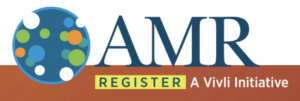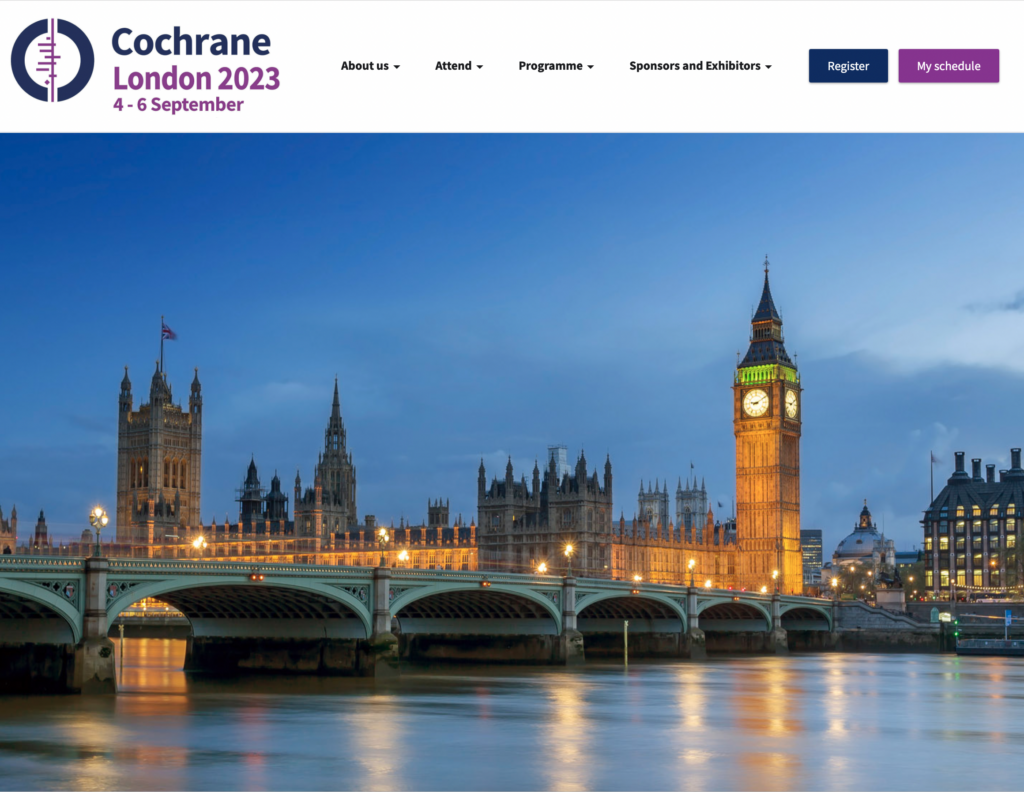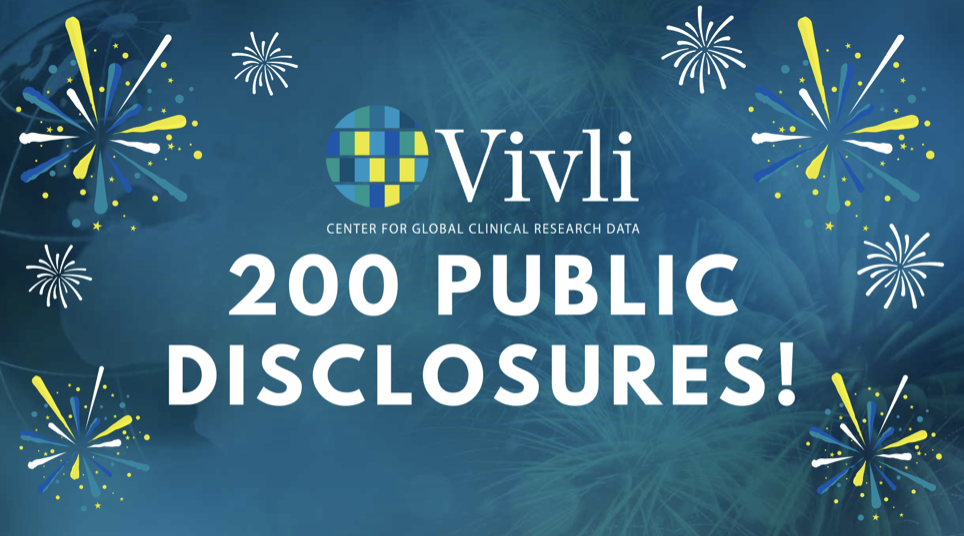Tag: biomedical research
Request Data from Vivli
Vivli Researcher Spotlight: Assessing Clinical Trial Data on Cardiac Risk in Type 2 Diabetes Treatment
 Dr. João Sérgio Neves is an endocrinologist, based in the Faculty of Medicine of the University of Porto and São João Hospital in Porto, Portugal. Dr. Neves’s team submitted a research proposal to access Vivli to conduct analysis relevant to their topic, “Albiglutide and Cardiovascular Outcomes in Type 2 Diabetes With and Without Concomitant Sodium-Glucose Cotransporter-2 Inhibition Use”. The team’s completed research has been presented in publications including the Journal of the American College of Cardiology. Dr. Neves sat down with Vivli to tell us more about accessing individual participant data to advance his research, and the potential for combination therapy to reduce the risk of cardiovascular events in patients with Type 2 Diabetes.
Dr. João Sérgio Neves is an endocrinologist, based in the Faculty of Medicine of the University of Porto and São João Hospital in Porto, Portugal. Dr. Neves’s team submitted a research proposal to access Vivli to conduct analysis relevant to their topic, “Albiglutide and Cardiovascular Outcomes in Type 2 Diabetes With and Without Concomitant Sodium-Glucose Cotransporter-2 Inhibition Use”. The team’s completed research has been presented in publications including the Journal of the American College of Cardiology. Dr. Neves sat down with Vivli to tell us more about accessing individual participant data to advance his research, and the potential for combination therapy to reduce the risk of cardiovascular events in patients with Type 2 Diabetes.
Could you tell us a little bit about your research? What got you interested in the particular area of research that you carried out working with Vivli?
So I am a clinical endocrinologist; I do clinical research in the field of Endocrinology. I have a particular interest in the effects of endocrine diseases on cardiovascular risk and on cardiac function. My main areas of research have been obesity, diabetes, and pre-diabetes. Previous studies conducted by our team have explored the effects of GLP-1 receptor agonists in patients with diabetes, both with and without heart failure. One of the questions that was still unanswered from the literature was whether the benefits of GLP-1 receptor agonists were still observed in those that were already treated with SGLT2 inhibitors. These two classes of drugs are known to be protective from a cardiovascular perspective for patients with Type 2 Diabetes. However, the two classes were developed and the clinical trials were conducted in parallel. So when clinical trials of GLP-1 receptor agonists (AMPLITUDE-O trial and Harmony Outcomes study) were conducted a bit later and included participants that were already treated with SGLT2 inhibitors at baseline. The authors of the AMPLITUDE-O trial had already performed a sub-analysis evaluating the effects of the GLP-1 receptor agonists in patients treated with SGLT2 inhibitors. Given the relevance of further exploring the combination of GLP-1 receptor agonists with SGLT2 inhibitors, our group requested the Harmony Outcomes study from Vivli. The we also performed a meta-analysis combining the results of the Harmony Outcomes study with the results from the AMPLITUDE-O trial. So there are two trials that we included that evaluate the effects of GLP-1 receptor agonists and included some patients using SGLT2 inhibitors and we wanted to know if this data could help us understand if both drugs when combined can give further cardiovascular protection to patients with Type 2 Diabetes.
And having come to the conclusions that you did – that there may be further reduction in cardiovascular risk but that more clinical trials with combination therapy are required – have the findings from this made any impact in terms of research practice that you’re aware of, since the findings have become available?
So since the findings became available, there has been some interest from other doctors contacting us on how to interpret our findings. We are very cautious and we believe that further data and dedicated clinical trials are necessary to thoroughly evaluate this drug combination. However, acknowledging that these trials might take several years to be conducted, we also recognize that our existing data could assist physicians in making informed decisions about utilizing this combination in the interim. We believe that the results of the Harmony Outcomes trial, in combination with the AMPLITUDE-O trial, favor the possibility that the combination of both drugs is protective from a cardiovascular perspective.
Interestingly, in the same month our paper was published in the Journal of the American College of Cardiology, the European Society of Cardiology published an updated guideline on the treatment of patients with Type 2 Diabetes and cardiovascular disease, and they recommended that patients with Type 2 Diabetes and cardiovascular disease should be treated with both drugs. They did not yet cite our paper because it was published just before publication of the guideline, but they do cite, for example, the AMPLITUDE-O trial. So I believe that our data will reinforce this recommendation; and we see that the field of treatment and prevention of cardiovascular disease in Type 2 Diabetes was already moving in the direction of our findings. But as there was only one study evaluating this combination, we think that our results will be very important for supporting the use of GLP-1 receptor agonists in combination with SGLT2 inhibitors.
Can you talk a little bit about using the data that was available through Vivli; what were you able to do using that data that you were not able to do otherwise?
The type of analysis we aimed to conduct could theoretically be performed using observational data. However, utilizing observational data poses significant challenges due to numerous confounders, particularly when assessing the effects of therapeutic interventions involving drugs. This limitation is well-documented, and such an approach would lack robustness, potentially raising more questions than providing answers. I think that the most interesting thing about the analysis that we performed was that this was a clinical trial that was already performed; the data was already available.
When we analyzed the data we worked with the authors from the primary paper; we got in contact with the authors of the primary analysis and we planned this analysis together. Our interactions with the original authors were invaluable in interpreting the data, given their familiarity with it. This collaborative effort resulted in an interesting analysis and yielded important results.
Can you talk a little bit about your experience of working with the Vivli platform – the processes and technology and what that was like?
I think that the process was quite easy, the instructions are clear. We know that there is always some type of bureaucracy that is involved, but that’s part of how it works, because we are dealing with data from patients. Of course it is anonymized data but I think that’s not different from what I was used to with other types of shared data. , The process works quite smoothly.
The thing that I feel that was a little bit different from our previous experience with secondary analyses, was the use of a platform for analyzing the data outside of our computers. Nevertheless, we successfully conducted our data analysis, and the data was also accessible within the remote computer, allowing us to execute the entire analysis seamlessly.
And how did you find out about Vivli and the opportunity to reuse shared data in general?
We had previously conducted analyses through the secondary analysis of existing data, utilizing platforms such as BioLINCC , which incorporates data from studies sponsored by NIH. Our awareness of Vivli stemmed from mentions in papers that disclosed their data sharing approaches, indicating that access could be facilitated through Vivli. This was my first personal experience using Vivli, and I must say that I find the work undertaken by the Vivli team truly remarkable. Your efforts contribute significantly to the future of research and the enhanced utilization of already collected data.
How has the direction of your own research been affected by the research that you did on this project? Has it affected what you’re doing or changed your direction in any way?
I believe it has provided clarity on the next steps to enhance knowledge in this field. In our team, we recognized that addressing whether the treatments were additive or not would be a pivotal question. If we discovered that the combination did not yield additional risk reduction, we needed to understand which drug to select for specific patients. With the results we obtained, our focus shifted towards understanding how to improve access to these drugs and assessing their effectiveness in other populations, particularly in the earlier phases of Type 2 Diabetes and even pre-diabetes. As we design new clinical trials, we are already incorporating the insights gained from this analysis.
Would you use the Vivli platform again? Are there any changes or improvements that you would recommend to how it works?
Certainly, the experience was highly positive, and I look forward to working again with Vivli in the future. One overarching improvement (that’s not specific to Vivli) would be to expand access to even more data. I do believe that the data is very valuable and that it is very important to share the data from large clinical trials. The type of study that we analyzed is probably the most relevant that should be shared – of course with a very specific and detailed analysis plan and with all the regulations that are needed in this context. Considering the substantial resources and time invested in these clinical trials, there is often a wealth of data that remains untapped. Many crucial analyses may not have been conducted and researchers not primarily involved in the clinical trial may be able to identify these questions and answer them using the data from that trial. Therefore, it is important to facilitate access to this valuable resource.
So my main recommendation is to try to increase even further the number of studies that are available. Of course this also depends on the companies that own the data and the drugs that are being evaluated. But our analysis could not be performed without the sharing by GSK, so we are also thankful for their contribution to Vivli and for the sharing of the data.
And is there any advice you would give to other researchers who are at the beginning of the process of requesting or using shared data?
My main advice is to have a very specific question that the researchers want to answer; develop a detailed analysis plan; and submit the request to the Vivli platform. While the process may take some time, it is not overly complex. With patience and adherence to the required steps, one can successfully obtain access to the data. I firmly believe that enhancing the utilization of the Vivli platform and increasing access to data from large clinical trials will significantly improve the quality of knowledge across various fields in medicine.
AMR Data Challenge Grand Prize Winners are leveraging the power of AI to combat antimicrobial resistance more effectively
 The World Health Organization (WHO) has identified Antimicrobial Resistance (AMR) as one of the top 10 global health threats facing humanity. Projections warn that antimicrobial-resistant infections have the potential to become the leading cause of death by 2050.
The World Health Organization (WHO) has identified Antimicrobial Resistance (AMR) as one of the top 10 global health threats facing humanity. Projections warn that antimicrobial-resistant infections have the potential to become the leading cause of death by 2050.
Recognizing the need for action on this pressing public health issue, Vivli joined forces with Wellcome in 2022 to launch the AMR Register. This innovative resource houses a growing collection of datasets shared by industry partners, offering consolidated access to surveillance data collected on dozens of antimicrobial interventions.
To raise awareness and encourage reutilization of this wealth of data, Wellcome funded the launch of the AMR Data Challenge in April 2023. The event offered a unique opportunity for multidisciplinary teams to access and leverage high-quality AMR surveillance data, and 56 teams from 28 countries submitted project proposals. The participating teams submitted a wide range of innovative proposals, making use of datasets contributed by GSK, Johnson & Johnson, Paratek, Pfizer, Shinogi, and Venatorx.
Submitted proposals were assessed by a judging panel of international experts, who selected six outstanding proposals for recognition as winners of the AMR Surveillance Open Data Reuse Data Challenge. The team that received the Grand Prize was led by Dr. Fredrick Mutisya, Health Data Scientist & Medical Doctor of Narok County, Kenya, and Dr. Rachael Kanguha, Pediatrician, Chuka County Referral Hospital, Kenya.
Their groundbreaking work involved training machine learning models on the Pfizer ATLAS datasets and the development of a novel artificial intelligence web application capable of predicting antibacterial/antifungal susceptibility. Their proposal notes that traditional methods of prediction have proved insufficiently dynamic to cope with the growing amount of genomic data available, or to effectively monitor and predict trends in antimicrobial resistance, leaving gaps in researchers’ understanding and ability to respond. Their goal is to showcase the best predictive model in order to enable proactive measures and early detection of emerging resistance patterns, and provide a model for ethically and effectively integrating AI into an evidence-based epidemiology approach.
Dr. Mutisya expressed his team’s commitment to AMR and highlighted the importance of providing equitable data accessibility to scientists from his region:
“Our team feels incredibly privileged to have participated in such a meaningful data challenge. Winning the grand prize not only fills us with a profound sense of fulfillment but also ignites a stronger motivation within us to continue seeking solutions for global issues, especially in combating antimicrobial resistance,” he said. “We are deeply grateful to Vivli for providing a platform that facilitates data accessibility. This is particularly significant for scientists like us hailing from the Global South, where opportunities like these are often scarce.”
Five other teams, including scientists from Australia, China, France, India, Spain, the United Kingdom, and the United States, were recognized by the judging panel for proposals which demonstrated notable impact and innovation. A complete list of the winning proposals and finalists is available on the Vivli AMR platform.
Members of the judging panel commented favorably on the excellent quality of the proposals submitted, the innovative approaches used, and creative solutions developed. One of the judges, Professor Marc Mendelson, also noted the importance of open access to data, calling it “a fundamental key to driving innovation towards a better understanding of AMR and the mitigation of this global health crisis.”
The Challenge is over for 2023, but the work of fighting AMR goes on. If you are interested in accelerating research and tackling a global public health challenge at the same time, explore Vivli’s AMR surveillance data sharing platform and find out how you can request access to data.
Vivli Researcher Spotlight: Dr. Yizhe Xu on analyzing clinical trial data to inform development of machine learning tools
 Yizhe Xu is a Postdoctoral Researcher at Stanford Center for Biomedical Informatics Research, Stanford University. Dr. Xu’s team submitted a research proposal to access Vivli to conduct analysis relevant to their topic, “Applying machine learning tools to personalize dabigatran treatment decisions”. The team’s completed research has been presented to the research community at conferences and in publications including the Journal of Biomedical Informatics. She sat down with Vivli to tell us more about accessing individual participant data to advance her research, and the potential for machine learning tools to support more accurate estimation and evaluation of heterogeneous treatment effects.
Yizhe Xu is a Postdoctoral Researcher at Stanford Center for Biomedical Informatics Research, Stanford University. Dr. Xu’s team submitted a research proposal to access Vivli to conduct analysis relevant to their topic, “Applying machine learning tools to personalize dabigatran treatment decisions”. The team’s completed research has been presented to the research community at conferences and in publications including the Journal of Biomedical Informatics. She sat down with Vivli to tell us more about accessing individual participant data to advance her research, and the potential for machine learning tools to support more accurate estimation and evaluation of heterogeneous treatment effects.
Tell us more about your research. What is the current state of management in your public disclosure topic?
Our final paper has been published in the Journal of Biomedical Informatics as of July 2023.
What led you to want to research this topic?
First of all, treatment effect heterogeneity is an important question that informs clinical decision making given the fact that treatment effects often vary across patients. Thus, accurate estimation of individual treatment effects helps to tailor treatment to patient characteristics and maximizes their benefits. However, it has been realized by a wide group of researchers that estimating treatment heterogeneity is challenging, so we summarized the best practices and advanced methodologies and showed a case study on how to carefully estimate heterogeneous treatment effects using the RE-LY and RELY-ABLE trials.
What difference do you hope your research might make, either in the field or for patients? How has it moved forward the treatment of patients?
We hope our case study provides clear instructions and serves as a concrete example for clinical researchers, and that by following our suggestions, they will be able to avoid possible false discoveries of treatment heterogeneity and prevent misleading findings. The improvement of research quality will directly benefit everyday clinical care in the sense that patients will truly benefit from personalized treatment selection if there is treatment heterogeneity and can be estimated reasonably well. On the other hand, we can save the clinicians’ time and efforts on considering personalized treatment when the treatment effect is essentially uniform across patients.
How could your findings be used in future clinical trials in your disease area?
The statistical methods we have summarized and the guidance we provide on how to select a method and evaluate the model performance can be applied to clinical trials in any disease area. However, for observational studies, practitioners need to consider adjusting for confounding, for instance, using methods such as propensity score matching or weighting.
How did the data you accessed through Vivli help you in answering your research question?
Very well. The RE-LY trial enables a case study for us to demonstrate the principled approach we proposed for estimating heterogeneous treatment effect in a real study. The RE-LY study has a large data size, and the fact that it is an RCT helps to simplify the task of treatment effect estimation.
What was your experience like in the process of requesting data using the Vivli platform?
It was an okay experience – we had some difficulties in resolving issues related to the DUA, which made us wait for quite a while, but we were able to get the access eventually.
Would you use the Vivli platform again? Would you recommend Vivli to others? What improvements would you recommend?
Yes, especially if I think some of the unique data sources on the Vivli platform will help to answer particular research questions of my interest. I will also recommend Vivli to others for the same reason. I would recommend simplifying the data requesting process to shorten the waiting time, as well as expanding user autonomy – particularly that users do not need to make a request every time they want to export results.
What advice would you give to other researchers about doing this kind of analysis?
We encourage researchers to understand their data first, then select the most suitable statistical approaches based on that knowledge. After that, we suggest interpreting findings based on the results from multiple estimators that are weighted by their performance, which is evaluated using several different metrics. Please also see our paper for our detailed recommendations.
Interested in finding out more about how access to Vivli’s data repository can help advance your research? Find out more about how to search and request data.
There’s more on Vivli than just clinical trial data
 Did you know there’s more on Vivli than just clinical trial data? The majority of our repository of data comes from clinical trial data, but also includes significant numbers of platform trials, observational studies, and real-world evidence resources.
Did you know there’s more on Vivli than just clinical trial data? The majority of our repository of data comes from clinical trial data, but also includes significant numbers of platform trials, observational studies, and real-world evidence resources.
Vivli’s repository of data from nearly 7,000 research studies is available to search freely. Enter any relevant keyword and you’ll get a listing of pertinent studies of different kinds. Here are some recent search results using common keywords for studies that are not clinical trials:
Observational: 198
Natural history: 26
Platform trial: 420
Explore our How To Guides to learn more about accessing and searching for data with Vivli. If you’d like to take your research further, you can get in touch with us for more information about specific studies or requesting access to data.
Vivli launches Portals to support more effective data sharing and data reuse
Vivli is delighted to announce the launch of our new Portals feature, designed to highlight therapeutic areas of interest to the research community. One of our first portals focuses on available data relevant to HIV/AIDS, a priority area of research focus for NIH.
We’ve designed Portals to make data from HIV/AIDS clinical trials more visible and discoverable. Vivli’s repository of data is built on nearly 7,000 research studies across a wide range of research areas, and includes a growing number being shared by individual researchers. This data repository provides a valuable resource for researchers to both share and access data that can be used to accelerate the progress of scientific research.
Are you an HIV/AIDS researcher? We’d love to hear from you, whether you’ve got data to share or are interested in exploring our data resources to request. Explore our new HIV/AIDS Portal and find out more about how Vivli can support your research.
This is funded in whole or in part with Federal funds from the Office of AIDS Research, National Institutes of Health, 1OT2DB000003-01, awarded to Vivli.
Vivli CEO Rebecca Li to speak at the NIDDK Central Repository 20th Anniversary Workshop

Vivli’s CEO, Rebecca Li, will speak at the NIDDK Central Repository 20th Anniversary Workshop: Promoting Secondary Research to Accelerate Medical Breakthroughs and Innovation. This online event, hosted by the National Institute of Diabetes and Digestive and Kidney Diseases, will take place on September 19-20, 2023.
Li will participate as a panelist in a discussion session on ‘Supporting NIDDK-Funded Research and Expanding NIDDK’s Data Ecosystem’. This session will focus on real-world examples in which NIDDK-funded research is strengthening the data ecosystem and accelerating medical breakthroughs through secondary research, and is scheduled to run on Wednesday, September 20. NIDDK has been making data available to researchers in the Vivli repository since 2022.
The 20th Anniversary Workshop will review the NIDDK Central Repository program from its early beginnings to its current state, and engage a diverse range of experts from the research community to share experiences and explore future possibilities. Registration is open until Tuesday, September 19 – find out more and register on the event website.
Vivli to host workshop at 2023 Cochrane Colloquium

Vivli will host a workshop at the 2023 Cochrane Colloquium in London on September 4. The Cochrane Colloquium is an annual event for Cochrane in support of its mission to promote evidence-informed health decision-making.
Vivli’s workshop will focus on “Practical advice for accessing patient-level data from a data sharing platform for evidence synthesis.” This session will provide:
- an introduction to the Vivli platform, including an overview of data available and hands-on group work on how to submit a request for data
- an overview of first-hand experience of using patient level data using Vivli’s data sharing platform as a case study
- a discussion session focusing on some of the opportunities and challenges associated with using patient level data (for example: what to do when data needed to answer the hypothesis is not available via a single data sharing platform?)
This session will be a mixture of hands-on practice and opportunities to hear from researchers who have used the platform, patient advocates, and data providers. There will also be time for participants to ask questions about the data access process.
Vivli Senior Director Julie Wood will be joined by Alan Chant, the patient representative on the Independent Review Panel; Catrin Tudur Smith from the University of Liverpool; and Rebecca Sudlow from Roche to facilitate this workshop.
For more information on the 2023 Cochrane Colloquium and to register for this session, please see the event schedule. Please note that participation in this session is open only to registered Colloquium attendees.
Vivli celebrates publication of 200th public disclosure

Vivli is delighted to announce publication of the 200th public disclosure resulting from the research team’s work with data from the Vivli platform.
Rebecca Li, the Chief Executive Officer of Vivli, congratulates all the research teams who have utilized data from the Vivli platform to advance health research through the re-use of valuable clinical trial data. She also acknowledges the organizations, individuals, and thousands of trial participants who have generously shared their data, making this milestone possible.
The Vivli repository houses data from nearly 7,000 trials, representing the contributions of 1.8 million clinical trial participants. On average, Vivli public disclosures are cited approximately 2.2 times per publication and appear in a wide range of highly-ranked academic journals.
For more information about how to share and re-use data on the Vivli platform, please visit our Resources page.

